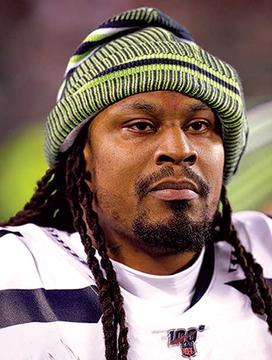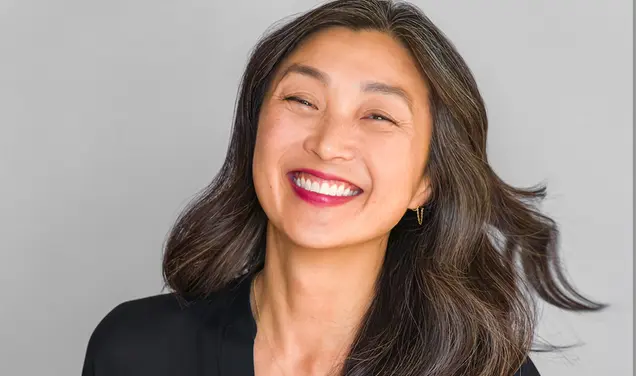Class Day Speaker Choice Sparks Controversy

Marshawn Lynch has powered through defenses for 12 seasons as a running back in the NFL and earned a reputation for community service off the field. But when Lynch was named as this year’s Class Day speaker Feb. 25, some students balked at the choice, writing a Daily Princetonian op-ed about the selection process that sparked a wider discussion of race on campus and how outspoken athletes are treated by the public at large. (Plans for Commencement events had not yet been announced when PAW went to press.)
The initial op-ed, written as an open letter to the Class Day co-chairs, questioned the criteria used in selecting Lynch. Seniors began inviting speakers from outside the University in 2001, and recent guests have shared “a connection with the graduation class as Princeton alumni or are widely regarded as exceptional communicators,” wrote the four authors; the Prince later removed their names due to “credible safety concerns” following online threats.
When newspapers began reporting on the objections to Lynch’s invitation, other seniors responded in the Prince that the letter writers didn’t speak for the class — and intentionally or not, they were invoking racist stereotypes of African Americans and athletes.
Julia Chaffers ’22, a Prince columnist, argued that Lynch aligns with the senior class as much as other non-alum speakers have, writing that his philanthropic work empowering underserved families embodies Princeton’s service ideal, and as a first-generation college student, he can relate to seniors from similar backgrounds.
“We need to stop treating athletes as puppets or performers acting for our consumption,” Chaffers wrote. “They are people, and they have interests and ideas outside of their sport.”











2 Responses
Amy Holmes ’94
5 Years AgoBeast Mode
This is my first letter to our venerable magazine as a cranky old alum.
I read with disappointment that students protested former Seattle Seahawks running back Marshawn Lynch as this year’s Class Day speaker (On the Campus, April 8). They were “confused” by the “set of criteria” used to select this outstanding athlete and dedicated philanthropist because he has been “reticent” to speak to national media. All the more reason to hear what this man of few words might have to share.
I don’t follow sports. I can’t tell you why it’s so hard to make 10 yards on four tries. But I did watch The Beast’s epic 79-yard run in 2014 as he swatted 250-pound men like flies and took it all the way to a glorious finish in the end zone. My parents and I cheered, watching the TV set; Christmas came early on the football field.
I hope that despite the awful extenuating circumstances upsetting this year’s graduation ceremonies our soon-to-be fellow alumni will still be inspired to go full Beast Mode as they cross the graduation finish line.
Bryan Niggli ’93
5 Years AgoMarshawn Lynch as Class Day Speaker
I laud the selection of Marshawn Lynch as Class Day speaker. I trust that the selection criteria considered values we hold dear: Overcoming adversity, extreme devotion to one’s passion, and getting directly involved in giving back to one’s own community after extraordinary achievements. I am fully confident that Marshawn won’t disappoint the audience. Marshawn will also give “voice to the people of his community” (paraphrasing the Prince op-ed). Let Marshawn spell out what “fine” means to him in 2020. I also trust the selection process. Involving 5,400 undergraduates risks selecting a speaker that is too safe or conventional.
Perhaps this an opportunity for us to reflect on how Princeton can one day welcome as students some of the sons and daughters of Oakland that Marshawn is helping and inspiring right now.
I was planning to come all the way from Switzerland to come see my hero speak and I truly hope that the show can go on.